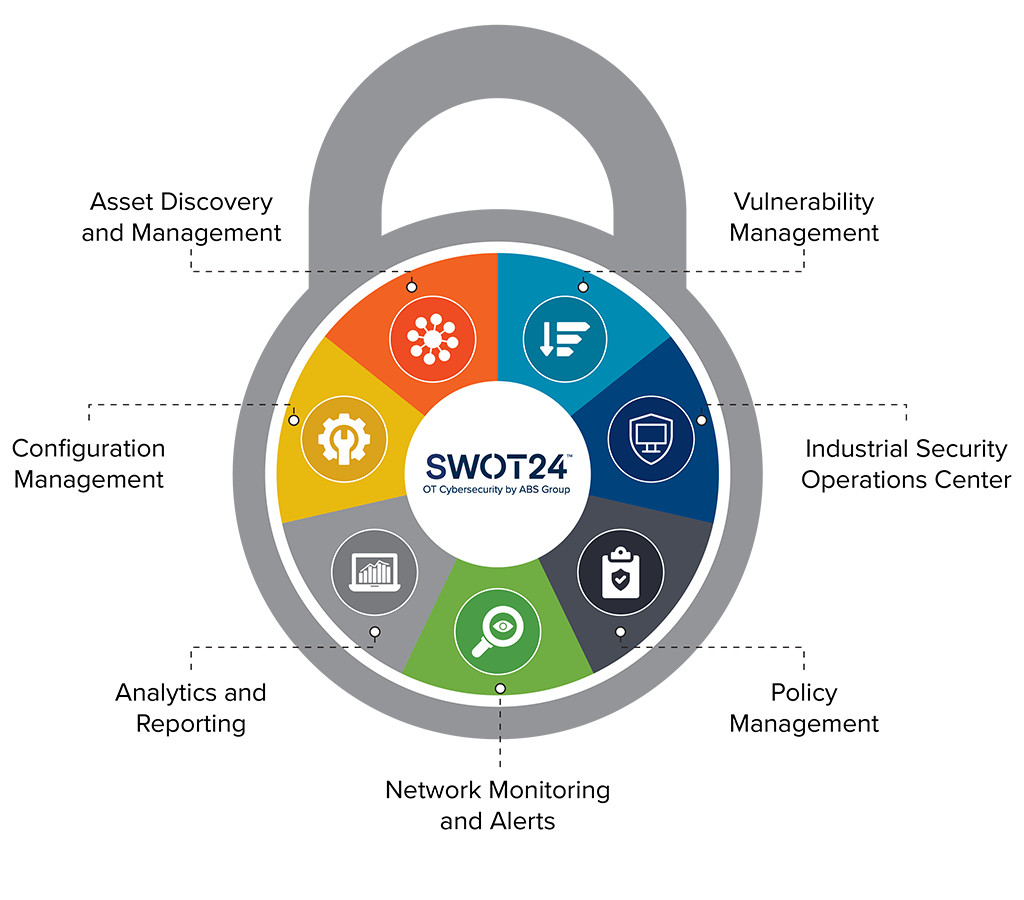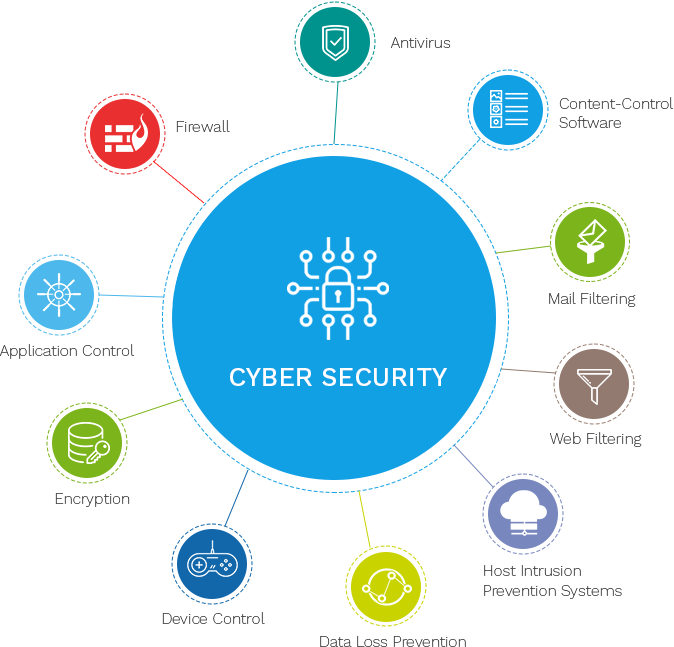Comprehending the Various Kinds of Cyber Security Services Available Today
In today's electronic landscape, comprehending the diverse variety of cyber protection solutions is crucial for safeguarding organizational data and framework. With dangers ending up being significantly sophisticated, the function of anti-viruses and anti-malware solutions, firewall programs, and breach discovery systems has never been a lot more critical. Managed protection solutions supply continual oversight, while information encryption remains a keystone of details defense. Each of these services plays a distinct function in a thorough security method, however just how do they engage to develop an impenetrable defense? Discovering these ins and outs can reveal much concerning crafting a resistant cyber safety and security position.
Antivirus and Anti-Malware
In today's electronic landscape, antivirus and anti-malware services are essential parts of thorough cyber security approaches. These tools are developed to detect, protect against, and counteract dangers positioned by malicious software program, which can compromise system honesty and gain access to sensitive information. With cyber risks evolving swiftly, deploying anti-malware programs and robust antivirus is crucial for guarding electronic assets.
Modern antivirus and anti-malware options employ a combination of signature-based discovery, heuristic analysis, and behavioral surveillance to identify and reduce hazards (Best Cyber Security Services in Dubai). Signature-based detection depends on data sources of well-known malware signatures, while heuristic analysis checks out code behavior to identify prospective hazards. Behavioral tracking observes the activities of software program in real-time, making sure prompt identification of dubious tasks
Moreover, these services commonly consist of features such as real-time scanning, automatic updates, and quarantine abilities. Real-time scanning makes certain continual protection by keeping an eye on documents and procedures as they are accessed. Automatic updates maintain the software current with the current risk intelligence, lessening susceptabilities. Quarantine capacities separate suspected malware, preventing further damage up until a complete evaluation is performed.
Integrating effective antivirus and anti-malware remedies as component of a general cyber safety and security framework is indispensable for shielding against the ever-increasing variety of electronic dangers.
Firewall Programs and Network Safety
Firewall programs serve as a crucial part in network safety and security, acting as an obstacle between relied on internal networks and untrusted exterior environments. They are created to check and control outbound and inbound network website traffic based on predetermined safety regulations.
There are different kinds of firewall programs, each offering distinct abilities customized to specific safety and security demands. Packet-filtering firewall programs examine data packages and permit or obstruct them based upon resource and location IP procedures, ports, or addresses. Stateful inspection firewall softwares, on the various other hand, track the state of energetic links and make vibrant choices based upon the context of the website traffic. For even more innovative defense, next-generation firewalls (NGFWs) incorporate added attributes such as application understanding, invasion prevention, and deep packet assessment.
Network security expands past firewall softwares, incorporating an array of innovations and methods developed to protect the functionality, reliability, integrity, and safety and security of network framework. Carrying out robust network safety and security steps ensures that organizations can prevent progressing cyber hazards and keep safe interactions.
Invasion Detection Systems
While firewall softwares establish a protective border to manage traffic flow, Invasion Discovery Systems (IDS) offer an added layer of safety and security by monitoring network activity for questionable behavior. Unlike firewall softwares, which mainly concentrate on filtering system outgoing and inbound web traffic based on predefined guidelines, IDS are made to spot prospective hazards within the network itself. They function by examining network website traffic patterns and determining abnormalities indicative of harmful activities, such as unauthorized gain access to efforts, malware, or policy infractions.
IDS can be classified into 2 major kinds: network-based Bonuses (NIDS) and host-based (HIDS) NIDS are released at calculated points within the network facilities to monitor web traffic throughout numerous devices, providing a wide sight of prospective hazards. HIDS, on the various other hand, are set up on private devices to assess system-level activities, providing a more granular point of view on protection events.
The effectiveness of IDS relies heavily on their trademark and anomaly detection capabilities. Signature-based IDS contrast observed events against a database of known hazard trademarks, while anomaly-based systems recognize variances from developed typical behavior. By executing IDS, organizations can boost their capability to react and identify to risks, thus reinforcing their general cybersecurity pose.
Managed Safety And Security Provider
Managed Security Provider (MSS) represent a critical approach to bolstering an organization's cybersecurity framework by outsourcing certain safety features to specialized companies. This model allows organizations to utilize expert resources and advanced technologies without the demand for significant internal financial investments. MSS providers use an extensive range of solutions, including monitoring and handling intrusion discovery systems, susceptability evaluations, danger knowledge, and event feedback. By handing over these important jobs to specialists, organizations can guarantee a durable defense versus progressing cyber hazards.

Price effectiveness is one more significant benefit, as organizations can avoid the considerable costs related to building and maintaining an internal protection group. Furthermore, MSS provides scalability, making it possible for companies to adjust their safety and security procedures in line with growth or altering risk landscapes. Ultimately, Managed Safety and security Providers provide a critical, effective, and effective means of securing an organization's digital assets.

Information Encryption Strategies
Data encryption methods are crucial in protecting delicate info and making certain data integrity throughout digital systems. These methods transform data right directory into a code to avoid unauthorized gain access to, thereby protecting private information from cyber risks. Security is vital for guarding information both at rest and in transit, offering a durable protection mechanism against data breaches and making certain conformity with information defense laws.

In addition, emerging methods like homomorphic security allow computations on encrypted data without decryption, protecting privacy in cloud computing. Essentially, information file encryption techniques are basic in modern cybersecurity approaches, securing info from unauthorized gain access to and keeping its privacy and honesty.
Conclusion
Antivirus and anti-malware services, firewall programs, and breach detection systems jointly improve danger discovery and avoidance capabilities. Managed safety and security services use continuous surveillance and professional event reaction, while data encryption methods guarantee the privacy of sensitive details.
In today's electronic landscape, understanding the diverse range of cyber protection services is vital for securing organizational data and facilities. Managed safety services supply continuous oversight, while information he said file encryption stays a cornerstone of details protection.Managed Safety Solutions (MSS) represent a strategic technique to reinforcing an organization's cybersecurity structure by contracting out specific protection functions to specialized providers. In addition, MSS uses scalability, allowing organizations to adjust their safety actions in line with growth or changing threat landscapes. Managed protection solutions supply continual monitoring and specialist occurrence feedback, while data encryption strategies make sure the discretion of delicate information.